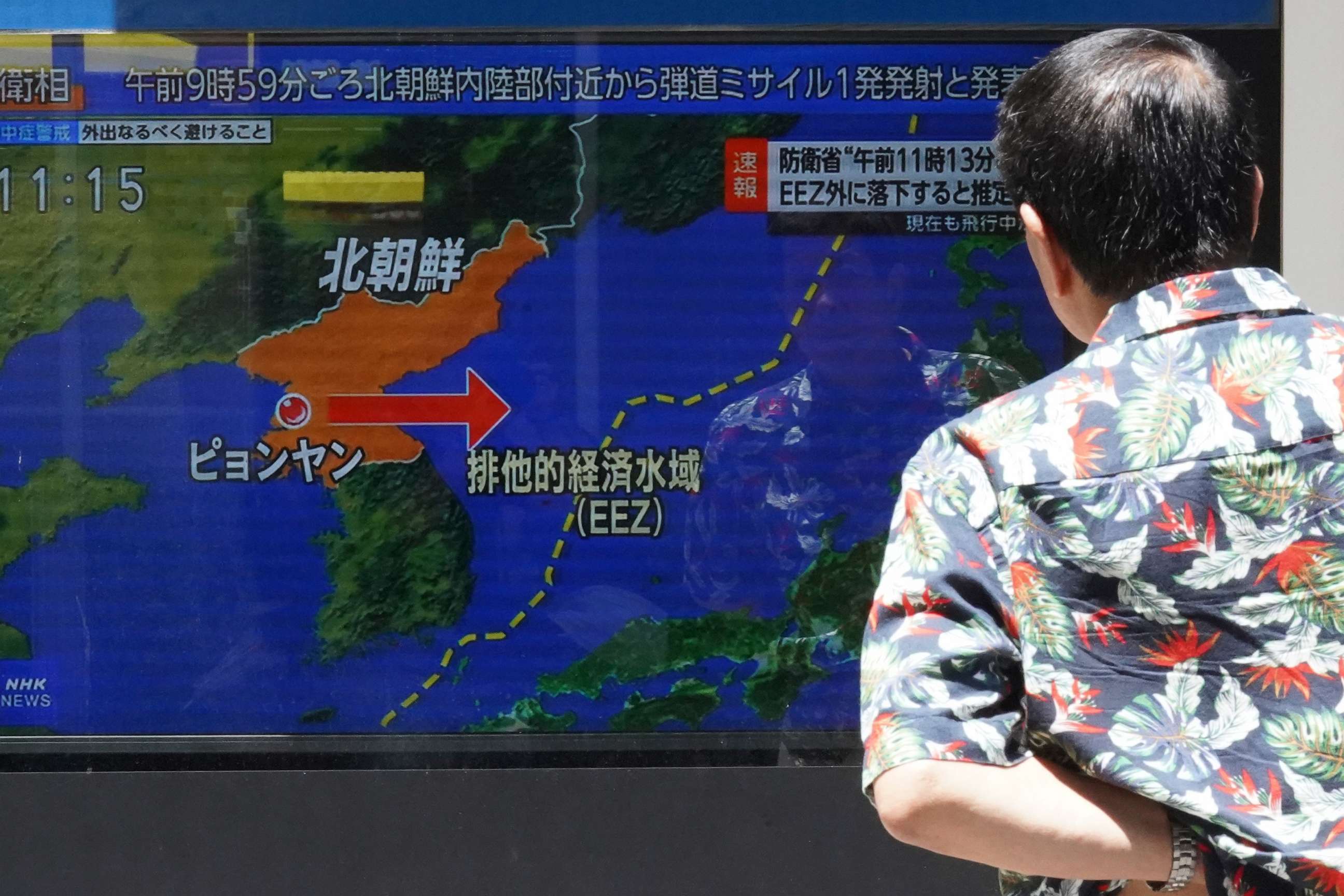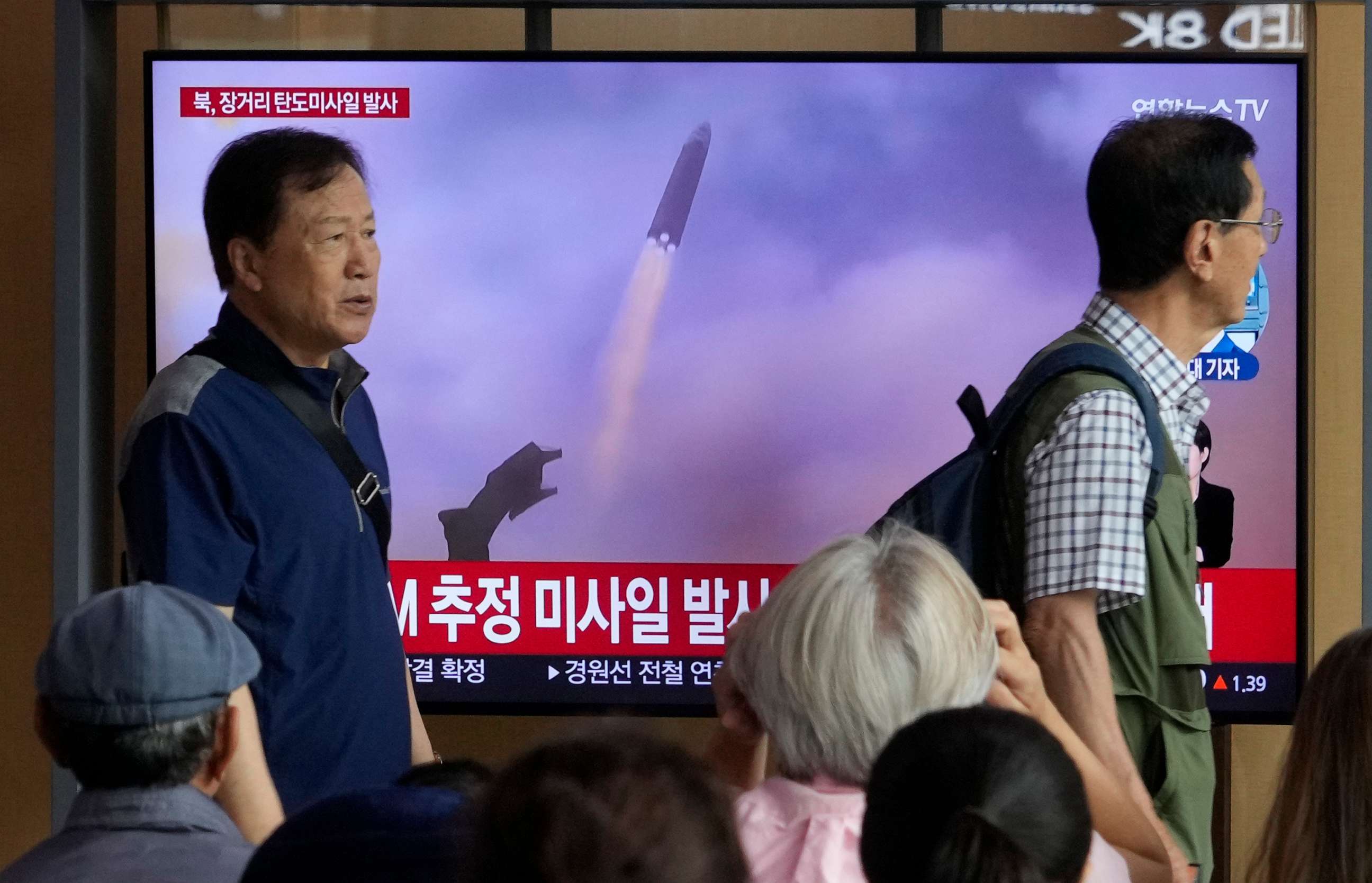North Korea launches long-range missile days after threats against US aircraft
The long-range missile test follows Sunday's threats against U.S. aircraft.
SEOUL and LONDON -- North Korea test-fired an intercontinental ballistic missile that flew about 621 miles before falling in the East Sea, neighboring Japan and South Korea said Wednesday.
The launch amounted to a "serious provocation that undermines the peace and stability of the Korean Peninsula as well as the international community," South Korea's Joint Chiefs of Staff said in a statement.
The recent launches, including another ballistic missile test-fired into the East Sea on June 15, were a "clear violation" of U.N. Security Council's resolutions, the statement said. Japanese officials echoed those sentiments.

"Moreover, such ballistic missile launches violate relevant United Nations Security Council resolutions and are a serious security issue for our citizens," Hirokazu Matsuno, Japan's chief cabinet secretary said in a statement. "We have lodged a strong protest against North Korea through our embassy in Beijing."
He said the secretive country's actions threatened the peace and security of the region and the international community.
The missile launched Wednesday near Pyongyang traveled for about 1,000 km at a "high angle" before falling into the sea, South Korean military officials said.
North Korea's leaders in recent days threatened to shoot down U.S. reconnaissance aircraft. The country accused the U.S. of moving a strategic nuclear submarine into "the operational waters of the Korean peninsula."
"This is a very dangerous situation as it will bring the regional military tension to a more critical state and may incite the worst crisis of nuclear conflict in practice," a spokesperson for North Korea's defense ministry said in a statement published Sunday by KCNA news, a state-run outlet.

The region was "coming closer to the threshold of nuclear conflict due to the U.S. provocative military action," the statement said.
A U.S. official on Tuesday asked North Korea to "refrain from escalatory actions," saying the threats against vessels in international waters or economic zones were "unlawful are unfounded, as high seas freedoms of navigation and overflight apply in such areas."
"We remain committed to diplomacy and reiterate our interest in dialogue with Pyongyang without preconditions, something that they have so far not taken us up on," Matthew Miller, spokesman for the State Department, said in a press briefing.
ABC News' Will Gretsky contributed to this story.




